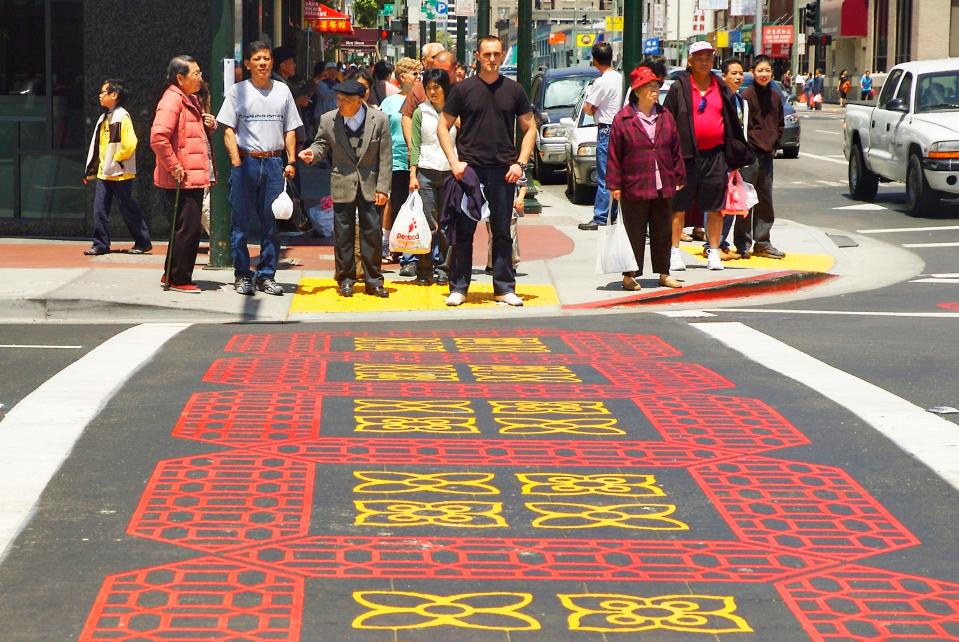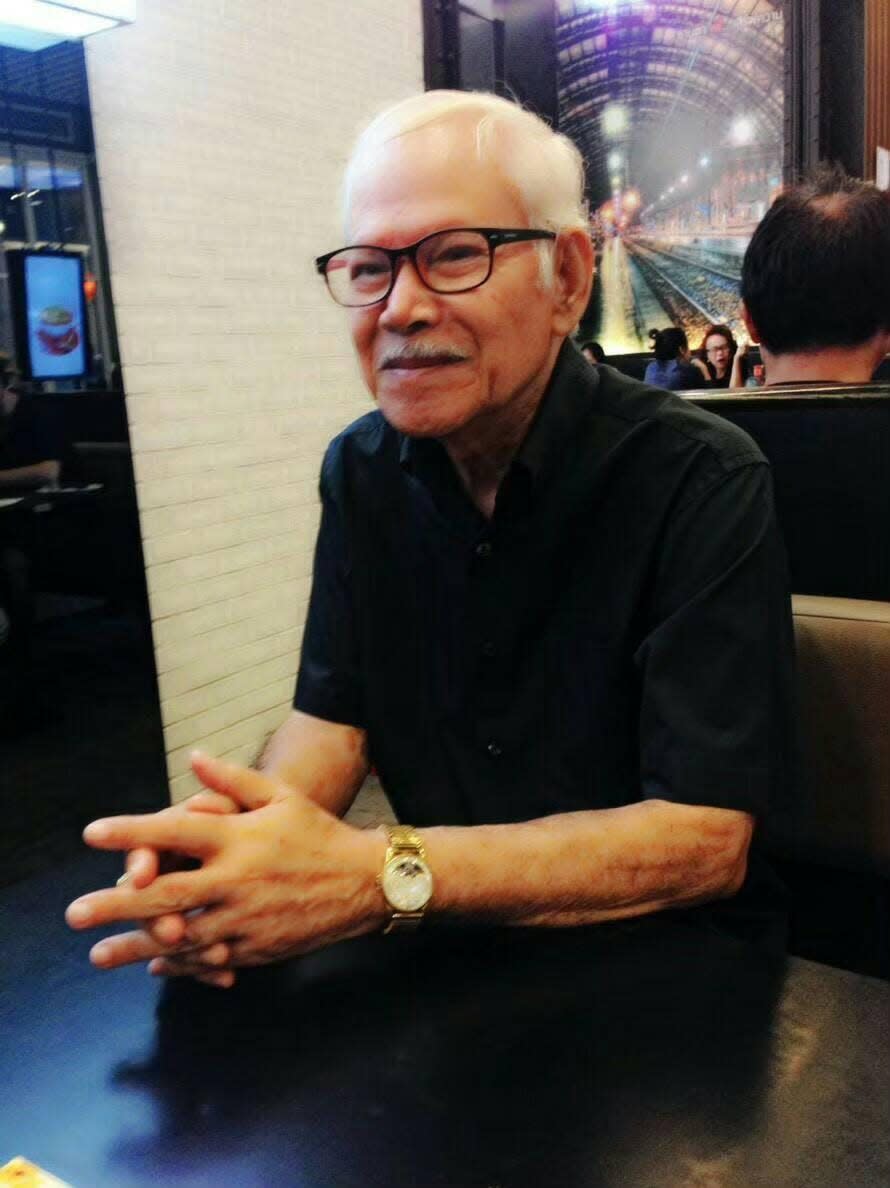'Stop killing us': Attacks on Asian Americans highlight rise in hate incidents amid COVID-19
A series of violent crimes against Asians and Asian Americans has prompted activists and experts to warn that racist rhetoric about the coronavirus pandemic may be fueling a rise in hate incidents.
Police in Oakland, California, announced this week that they arrested a suspect in connection with a brutal attack of a 91-year-old man in Chinatown that was caught on camera. In less than a week, a Thai man was attacked and killed in San Francisco, a Vietnamese woman was assaulted and robbed of $1,000 in San Jose, and a Filipino man was attacked with a box cutter on the subway in New York City.
It's unclear whether the crimes were racially motivated, but advocates calling for more to be done to address violence against Asian Americans say racist crimes against the community are historically underreported for a variety of reasons.
Meanwhile, police departments across the country are warning residents of increased crime around Lunar New Year, in part because of the threat of robberies during the multi-day celebrations that begin Friday. Cash is a customary gift.
Lunar New Year 2021: What does the ox symbolize, and how will it be celebrated during COVID-19 pandemic?
Violence against Asian Americans sharply increased in March as COVID-19 began spreading across the country, and some politicians, including former President Donald Trump, blamed China for the pandemic, said Russell Jeung, who created a tool that tracks hate incidents against Asian American Pacific Islander communities called the Stop AAPI Hate tracker.
"When President Trump began and insisted on using the term 'China virus,' we saw that hate speech really led to hate violence," said Jeung, chair of the Asian American studies department at San Francisco State University. "That sort of political rhetoric and that sort of anti-Asian climate has continued to this day."

Acts of racist violence lead to increased anxiety and fear in a population that already has higher rates of anxiety and depression related to COVID-19 than other racial groups, Jeung said.
Stop AAPI Hate, Jeung's website, which includes a self-reporting tool for harassment, discrimination and violent attacks, recorded 2,808 incidents of anti-Asian discrimination across the U.S. from its inception on March 19 to Dec. 31, 2020. Another organization, Asian Americans Advancing Justice - Asian American Justice Center, recorded more than 3,000 hate incidents in their self-reporting system since late April 2020 – by far the highest number in the tool's four-year history.
The FBI collects national hate crime data, but data for 2020 and 2021 has not yet been released. Two hundred sixteen anti-Asian hate crimes were reported in 2019, according to the latest data available.
That number may be just a fraction of the true total given that fewer than half of the victims of a hate crime ever report it to the police, according to data from the Bureau of Justice Statistics.
Jeung said the increase in hate incidents is a particular concern in urban areas. In New York City, police data shows there were 24 anti-Asian hate crimes related to the coronavirus between Jan. 1 and Nov. 29, 2020, compared with just three anti-Asian hate crimes in the same period in 2019.
"This increase was cultivated due to the anti-Asian rhetoric about the virus that was publicized, and individuals began to attack Asian New Yorkers, either verbal attack or physical assault," Chief of Detectives Rodney Harrison told reporters in August.
The spike in hate crimes led the NYPD to create an Asian Hate Crimes Task Force.
'We just want to be safe': Hate crimes, harassment of Asian Americans rise amid coronavirus pandemic
Activists including Amanda Nguyễn, co-founder of Rise, a sexual assault survivor advocacy organization, are raising awareness of the Oakland case and the other violent incidents involving Asian Americans. Nguyễn said she created an Instagram video about the attacks, which has since gone viral, because she was angered not only by the violence but by the lack of media attention the cases received.
"When I made that video I was tired of living in fear and I wanted to scream," she told USA TODAY. "It’s so absurd that I have to say 'Stop killing us.' ... We are literally fearing for our lives as we walk out of our door, and your silence, your silence rings through our heads."
In the Oakland assault, the district attorney's office is investigating whether there is enough evidence to support hate crime charges, Alameda County District Attorney Nancy O'Malley said in a statement to USA TODAY.
⚠️ WARNING: this video is hard to watch. Another shocking attack in Oakland’s Chinatown. 8th and Harrison Streets. Outside the Asian Resource Center.
20+ robbery/assault incidents in the neighborhood according to the Chinatown Chamber president. https://t.co/9bo9PzuqiL pic.twitter.com/8h6dkNA1TG— Dion Lim (@DionLimTV) February 4, 2021
The suspect in the Oakland assault, Yahya Muslim, was charged with three counts of assault, inflicting great bodily injury and committing a crime against an elderly person, O'Malley announced at a news conference Monday.
Police said Muslim is believed to have attacked a 60-year-old man and a 55-year-old woman the same day of the Chinatown attack.
Meanwhile, actors Daniel Dae Kim and Daniel Wu offered a $25,000 reward for information leading to an arrest in the case and are donating that money to community organizations like Stop AAPI Hate.
Dig deeper on race and identity: Subscribe to This Is America, USA TODAY's newsletter
"The skyrocketing number of hate crimes against Asian Americans continues to grow, despite our repeated pleas for help," they said on Twitter. "The crimes ignored and even excused."
On Jan. 28, Vicha Ratanapakdee was attacked and later died in San Francisco. Eric Lawson, his son-in-law, told USA TODAY he believes the 84-year-old was targeted because he was Asian. Lawson adde that his wife, who is Thai, was verbally assaulted twice and told to "go back to China" before the attack.
"Everyone is dancing around the issue, and no one's addressing it," he said.
San Francisco District Attorney Chesa Boudin filed murder and elder abuse charges against Antoine Watson, but his office has "no evidence of what motivated this senseless attack," spokesperson Rachel Marshall told USA TODAY.

In San Jose, a 64-year-old Vietnamese woman was assaulted last Wednesday and robbed of $1,000 in cash she had withdrawn for the holiday. No arrest has been made, and there is no indication the robbery was race-related, said public information officer Sgt. Christian Camarillo.
That same day in New York, 61-year-old Noel Quintana, who is of reportedly Filipino descent, was slashed in the face with a box cutter on the subway. Spokesperson Detective Sophia Mason told USA TODAY police were investigating but did not answer questions about whether the incident may have been motivated by race.
Christian Hall: Ben Crump to represent family of Asian American teen killed by police while having 'mental health crisis'
Although it's unclear whether the particular cases are racially motivated, they are certainly "related" and "horrific," Jeung said.
"What makes it worse is we see our elderly and youth also targeted," he said. "It seems like people are attacking vulnerable populations."
John C. Yang, president and CEO of Asian Americans Advancing Justice-AAJC said his organization has been tracking anti-Asian hate incidents and crimes for nearly 30 years and has received hundreds more hate incident reports in 2020 than in previous years. He said polls by IPSOS and Pew Research Center indicate that the true scope of hate Asian Americans are experiencing is probably much larger, and better data is needed.
"Although these reports are clearly incomplete, clearly just the tip of the iceberg that shows us that there is this dramatic increase in hate incidents," he said, noting that it's too soon to tell if that increase is continuing in 2021.
There are several reasons victims of a hate crime may not report it to the police, according to Yang.
Yang said victims may not be aware of the resources available for them, and there may be language barriers to accessing those resources for older Asian Americans in particular. He said there may be cultural barriers to reporting as well, including shame around being perceived as a victim. Some victims may also be concerned about interacting with law enforcement because of their immigration status.
Yang added that not all hate incidents rise to the level of crime, but they still "clearly inflict a level of mental trauma." He estimated that only about 10% of the incidents reported to his organization could be considered crimes.
'They look at me and think I'm some kind of virus': What it's like to be Asian during the coronavirus pandemic
Jeung, of Stop AAPI Hate, said that in addition to crimes such as physical violence, Asian Americans have reported experiencing violations of their civil rights including being denied service by businesses or rideshares, being verbally harassed with racial slurs and facing vandalism and property damage.
He said his wife was deliberately coughed on while jogging, noting the similarities to a New Jersey incident where a man was charged with making a terroristic threat after coughing on a supermarket employee and saying he had the coronavirus.
"There is such a climate of hate and anger that we need to again lower the temperature and remind people to treat others with respect," he said.
President Joe Biden signed a memorandum in late January denouncing xenophobia and violence against Asian Americans and Pacific Islanders. Yang said the Biden administration's words have made a difference, but the recent violence has caused the community to "hunker down again" during a normally celebratory time.
He said more needs to be done to ensure victims have support systems and to educate bystanders about safe intervention. He warned against relying too heavily on law enforcement.
Despite the horrific crimes, Jeung was excited to see the Oakland community organizing efforts to reduce crime in the neighborhood.
"What I’m really heartened by is the Asian American community is really standing up," he said. "I want people to know we’re not simply victims of discrimination, but we’re advocating for racial justice for everyone in the United States and we’ll continue to do so."
Follow N'dea Yancey-Bragg on Twitter: @NdeaYanceyBragg
This article originally appeared on USA TODAY: COVID: Asian Americans see violence, hate crimes rise amid pandemic


